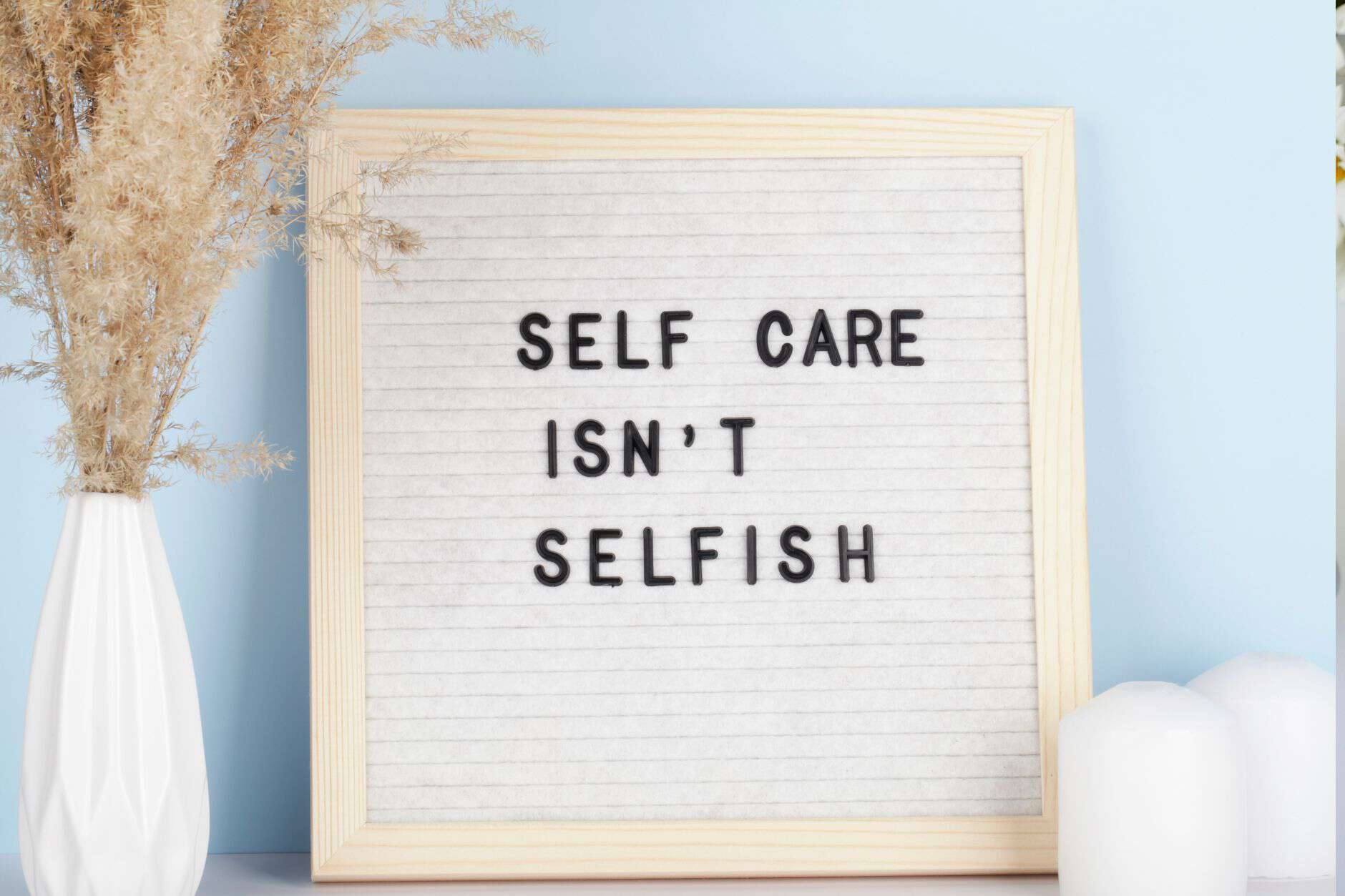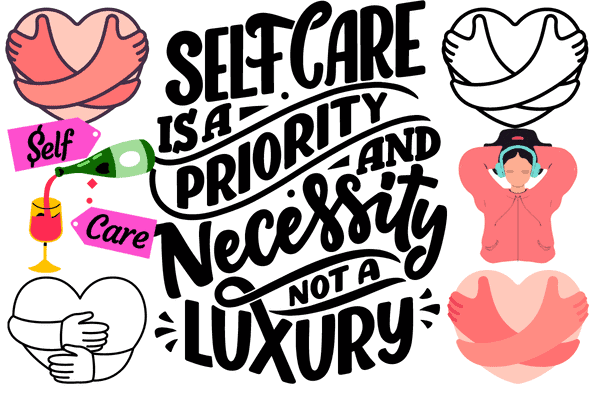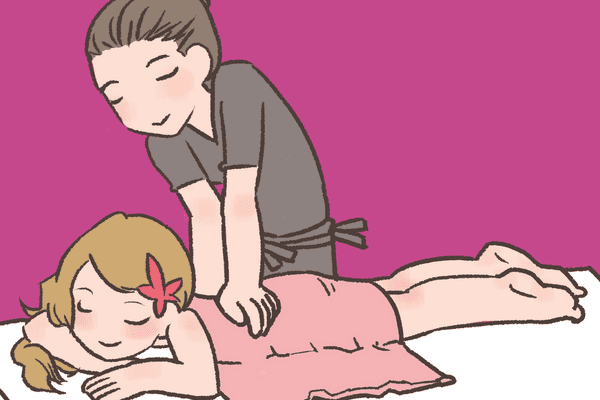Last updated on August 25th, 2025
It’s so easy to get caught up in work and forget to take care of ourselves. But here’s the truth: your well-being matters.
Taking care of your physical, emotional, and mental health isn’t just something nice to do—it’s what helps you create balance in your life and sets you up for success in everything you do.
That’s why I’ve put together 28 simple self-care ideas to help you feel more energized and grounded. Whether it’s stepping away from your screen for a few minutes or trying something more intentional like meditation, these tips are all about helping you recharge and refocus.
If you’re a busy professional trying to manage it all or just looking for fresh ways to feel your best, this list is here to inspire you.
Let’s explore these self-care ideas and help you feel healthier, happier, and ready to take on whatever comes your way!
What is self-care?
Self-care is easy to explain because it is the opposite of both self-sabotage and self-control.
Many people confuse self-care with self-indulgence, but self-care is actually a very important part of being healthy, happy, and effective.
Self-care is about taking time for yourself to nurture and care for your body, mind, and soul.
Self-care is about being conscious and intentional about the way you live. It’s about giving yourself permission to be who you are.
It’s about making choices that are good for you, so that you can fully enjoy life.
What is professional self-care?
In our fast-paced, constantly connected world, it’s more important than ever to take some time for professional self-care.
But what is professional self-care, and how can you make sure you’re doing it right?
Professional self-care is all about taking the time to care for yourself, both physically and mentally.
This means making sure you’re getting enough sleep, eating a healthy diet, and exercising regularly.
It also means taking breaks when you need them, spending time with loved ones, and doing things that make you happy.
It can be easy to let work consume your life when you’re passionate about what you do. However, it’s important to remember that your health should always come first.
When you take care of yourself, you’re able to show up as your best self at work and be more productive overall.
Why is it important to practice self-care?
While self-care is often thought of as something we should do for our physical health, it is just as important for our mental and emotional wellbeing.
Self-care is important because it helps us stay healthy and happy. For example, when we eat healthy foods and exercise, we are taking care of our bodies.
When we spend time with friends and family or do things that make us laugh, we are taking care of our minds.
When we get enough sleep and rest, we are taking care of our bodies and our minds.
Self-care is important because it helps us reduce stress, which can have a negative impact on our health if we don’t manage it properly.
Stress can cause physical problems like headaches and stomach aches, as well as mental problems like anxiety and depression.
When we take care of ourselves, we are better able to cope with life’s challenges and setbacks. We also feel happier and more fulfilled.
Why is it important to practice self-care at work?
Self-care at work is important for a number of reasons.
First, when we take care of ourselves, we are better able to take care of others.
Second, self-care helps to prevent burnout.
And third, self-care can improve our productivity and focus at work.
When we practice self-care, we are sending a message to our employers that we value our own wellbeing.
This can help create a culture of wellness in the workplace.
And when employees feel supported in their efforts to take care of themselves, they are more likely to be engaged and productive at work.
There are many ways to incorporate self-care into the workplace. For example, employees can make time for regular breaks during the day to move their bodies and get some fresh air.
Self-Care Activities To Start Your Day
What you do first thing in the morning can set the tone for the rest of the day including your work life. Do things to start your day that make you feel strong and alive.
What habits you choose will depend on what you value and what you want to achieve. Try out small things and have fun.
Here are some professional self-care ideas for morning routines that will help you do well.
Morning Routines to Empower Your Body:
1. Turn off the alarm clock and get out of bed
Do you still feel tired after a full night’s rest? You might be causing the problem by hitting the snooze button. It interferes with your body’s normal waking cycle. Sleep inertia that lasts for hours may be the result of that.
2. Grooming
This can be a good way to figure out how healthy your mind is. People who have serious mental health issues frequently do not take care of themselves.
Every day, you should look and feel your best. It’s amazing how much a good shower, shave, and flossing can change your mood and attitude.
3. Drink your water
Hydrate yourself. Put off that morning coffee if you can. Drinking water will replenish your internal fluids and perk you up.
Adding a few berries, a few herbs, or some cucumber slices will give it a nice flavour boost.
4. Get some breakfast
Warm up some leftovers or treat yourself to a traditional breakfast. Greek yoghurt with fruit and fish tacos are both excellent meal options.
5. Make time for exercise
If you know you’ll be sitting at a computer for a long time, it’s especially important to finish your main exercise session or at least get up and move around a bit.
Pick something that sparks genuine joy in you, like yoga or swimming.
6. Check Your weight
Checking your weight on a daily basis can be useful if you’re trying to lose weight. Be aware that daily changes are to be expected, and keep an eye out for rising or falling trends.
7. Go out and enjoy the fresh air and sunshine
The hormone cycle that helps you wind down for a good night’s sleep at night begins in the morning when the sun comes up.
Take your lunch break on the patio or ride your bike to the office.
Morning Routines to Empower Your Mind:
8. Don’t use technology
Try to stay away from electronic devices. Don’t let social media take over your life. Turn off your phone or only look at it if you have an important message.
9. Get ready
You can have a better morning if you start doing things the night before. Set out your clothes and pack your briefcase.
10. Take a moment to reflect and talk to God
Feed your spiritual side. If you have never meditated before, start with a few minutes and slowly add more.
11. Repeat positive statements
Give yourself messages of love and encouragement. Use the present tense and keep your words short. You can get more focused by looking in the mirror.
12. Talk with people you care about
Enjoy time with your family. While you’re helping your kids get dressed, play a word game with them. Tell your partner how much you love and care about them.
13. Learn to be thankful
Count your blessings. Give thanks for all that you have.
Keep a gratitude journal. Every day, write down three things that you’re thankful for. This could be anything from your health to your family and friends to a nice cup of coffee in the morning.
I want you to think of someone you should thank today. Over time, you’ll start to notice just how much there is to be grateful for in your life.
14. Never, ever stop learning
You can never know everything and there is always something new to learn.
You could use that time in the morning to study formally or online for your degree. Listen to the podcast on history. Read good stories or nonfiction books.
15. Begin a project
Do you have trouble making time for yourself? You might have the chance to pursue your personal passions or grow your side business in the early hours of the morning.
16.Listen to music
According to research, listening to music makes you more alert and helps you remember things better. Make a playlist of your favourite songs or turn on your favourite radio station.
17. Create a daily schedule
Plan your day and set goals. If not, things going on around you can keep you from focusing on what you really need to do. Don’t forget to give yourself enough time to relax and recharge.
Start your day off with a routine that will make you feel more productive and accomplished. Adopt good habits and you’ll be happy to get out of bed every morning.
18. Keep a diary or journal
Keep this in a separate place from your planner and notepad, and use it to record unpleasant feelings that will inevitably arise.
This can help you recognize patterns and regular sources of stress, so you can start figuring out how to deal with them.
19. Do some deep breathing exercises to calm down
Breathing deeply can help when you’re feeling overwhelmed.
When you’re feeling stressed or anxious, one of the best things you can do is take a few minutes to do some deep breathing exercises.
This will help to calm your body and mind, and can even lower your heart rate.
To begin, find a comfortable place to sit or lie down and close your eyes. Then, start to breathe in slowly and deeply through your nose.
Fill up your lungs as much as you can, then exhale slowly through your mouth. Repeat this for a few minutes, and you should start to feel more relaxed.
20. Create a sleep schedule
Create a sleep schedule and follow it religiously. A sleep schedule is a plan that helps you regulate your body’s natural sleep and wake cycle.
It can be as simple as going to bed and waking up at the same time every day, even on weekends.
It is not hard to convince yourself that sleep is important for your mental and physical health.
You only need to miss one night to realise the importance of sleep for your health.
21. Improve your posture
Tools like Comforts Back and Lumbar Cushion, Aligned Roller, and Sleep Yoga Dual Sleep Neck Pillow can be used to improve your posture.
With the help of tools like these, you can maintain a healthier spine, avoid injuries, and boost your mood.
22. Avoid excessive eye strain
Long hours in front of a screen can be taxing on the eyes, but there are ways to lessen that strain, such as blue light glasses and a screen filter that reduces glare to enhance screen contrast and make characters easier to read.
Tools that limit your exposure to blue light or remind you to give your eyes a break every so often are essential if you want to avoid getting tired and getting headaches from using a computer for a long time.
23. Practice meditation between major tasks
Any time away from work is beneficial, but if you can spare a few minutes, try meditating to see if it helps your mood.
24. Reduce how much caffeine you drink
If you drink more than one cup of coffee per day, gradually reduce your intake. Try switching to black tea and then to green tea to cut back on caffeine and get the health benefits of tea.
25. Avoid burnout
It has been established that long hours at work are very dangerous to workers’ health.
Rules should be in place to protect workers from exhaustion, but these should not interfere with their ability to earn a living wage.
The overtime hours worked should be compensated for.
26. Get that massage
Massages are beneficial for people of all occupations because they reduce stress and help release built-up muscle tension.
As well as helping you take care of your body in general, they are especially useful if you have a physically demanding job. Let your muscles unwind.
27. Remember to take breaks
Take breaks throughout the day, and make sure to step away from your work at the end of the day. This will help you relax and rejuvenate.
Taking a short break every 90 minutes can do wonders for your concentration and focus.
Spend that time doing something that will take your mind off of your work, such as listening to music or talking to family.
28. Keep work time and personal time separate
It can be difficult to keep work life and personal life separate, especially when you work from home.
Set boundaries with your employer. Let them know what hours you are available to work, and stick to those hours.
Set aside a dedicated work space in your home. This will help you to create a physical boundary between work and home life.
Create a daily routine and schedule time for yourself every day. This will help you to wind down after work and avoid burnout.
Don’t bring your work home with you.
Developing a Effective Self-Care Plan
A good self-care plan helps you remember what you want to do. After all, your life has meaning, goals, and values. This plan will help you remember what you need to do for yourself.
Using a daily planner or writing yourself notes can help you remember your goals and the things you need to do to take care of your body, mind, and soul.
Your self-care plan gives you a solid basis for what you want to do and how you can do it.
You should also give yourself motivational quotes and affirmations. This is the spiritual food that keeps you focused on your own wellbeing.
You also have little reminders of why you’re doing what you’re doing.
In addition to motivational quotes, you can hang up motivating pictures all over your home or office.
Some of these pictures may be of exotic places you’d like to visit someday, while others may be peaceful pictures of nature.
Your pictures could be of something you want to bring into your life or of a good memory from the past.
You can also put up a picture of your family to remind yourself of what’s important to you.
Your plan for self-care should motivate you and help you remember why you want to take care of your body, mind, and spirit.
Your plan for self-care also includes keeping track of how you’re doing. Say you have trouble getting yourself to exercise.
Through keeping track of how much time you spend working out, you can stay motivated to get healthier.
A food journal is also a good way to keep track of the foods you eat so that you can remind yourself to eat healthy foods.
You can also write down how your mental and emotional health is doing in a journal.
Write down how you’re feeling so you can evaluate how you’re doing and take care of your mental health.
Your self-care plan keeps track of how you’re doing so that you can stay on track to reach your goals.
You can use these parts of planning for anything in your life so that you have the solid foundation you need to take care of yourself.
Just make sure that you take care of the inside as well as the outside.
Creating a personal self-care plan
You might need to motivate yourself to start your self-care plan. For some, starting something new can be scary.
Also, you’ll need to keep yourself going by finding motivation along the way.
Ask yourself what has gotten you going before. Use this as motivation to do what you need to do to take care of yourself.
Having a family member, friend, or spouse hold you accountable is a good way to keep you going in the right direction.
If you make a mistake in your efforts to take care of yourself, they will let you know so you can refocus and get back on track.
Self-care works best when it has some kind of structure. You have to take care of yourself before you can help others.
A good plan for self-care will give you the vigour, attitude, and energy to enjoy life to the fullest!
Final Thoughts
These are 28 of the top professional self care ideas for a healthy work-life balance. Taking care of yourself is crucial to being able to function at your best and provide value to your organization.
Through taking care of yourself, you’ll be better able to take care of those around you. Implementing even just a few of these ideas can make a big difference in your overall well-being.
You can download this self-care worksheet below. The exercise within will help you identify ways to improve your self care and put your own needs first.
Question to answer
Which Self-Care Activities Will You Try?






